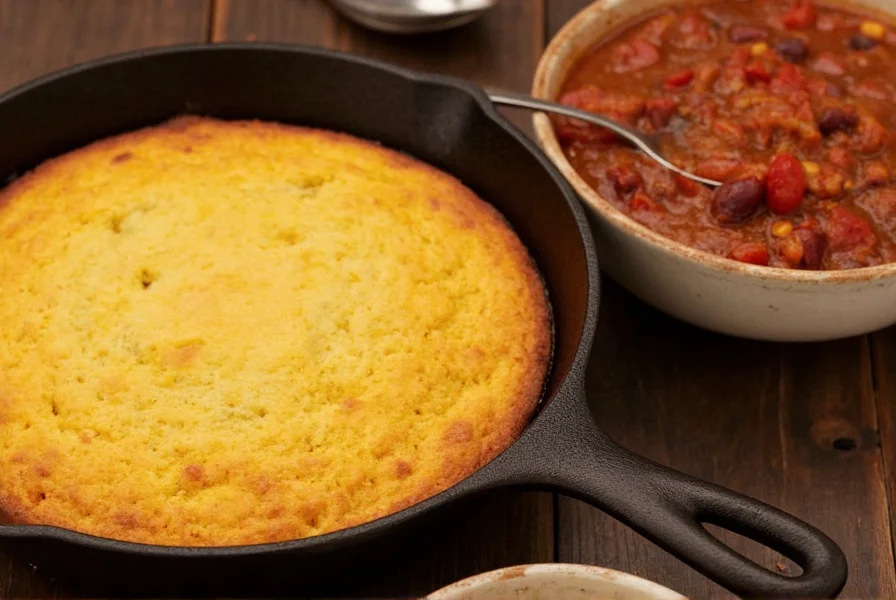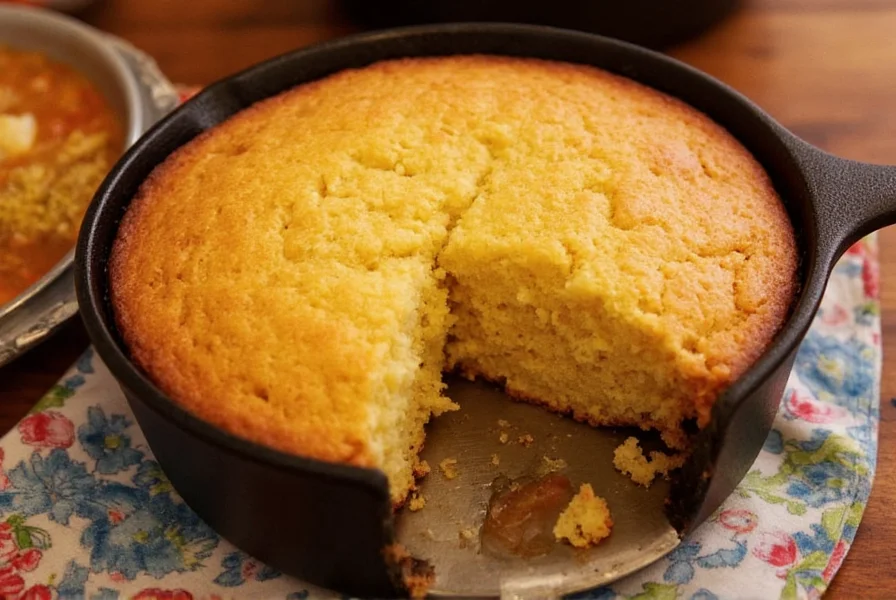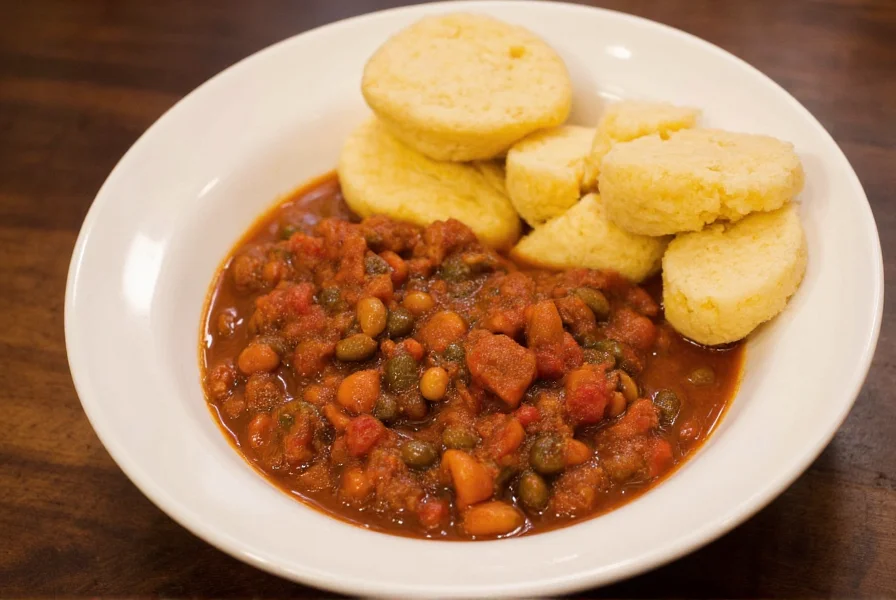For generations, chili and cornbread have been the quintessential comfort food pairing across American kitchens, particularly in Southwest and Southern regions. This timeless combination delivers a perfect balance of flavors and textures that satisfies both casual weeknight dinners and special occasions. Understanding why these two elements work so well together—and how to prepare them authentically—elevates this simple meal into something extraordinary.
The Historical Roots of Chili and Cornbread
Cornbread traces its origins to Native American cooking traditions, where ground corn was baked into simple flatbreads long before European settlers arrived. Spanish colonists in the 16th century documented Native Americans preparing corn-based breads, which evolved as settlers adapted the recipe with available ingredients. The addition of buttermilk, eggs, and sugar transformed traditional corn pone into the sweeter cornbread familiar in Southern kitchens today.
Chili's history is equally rich, with roots in Mexican and Texan cuisines. The dish likely evolved from Mexican carne con chile (meat with chili peppers), adapted by Texan settlers who added local ingredients. By the late 19th century, chili con carne had become a staple at Texas chili parlors and cowboy camps, often served with cornbread as the perfect accompaniment.

Why Chili and Cornbread Create Culinary Harmony
The magic of chili and cornbread lies in their complementary characteristics. Food science reveals several reasons why this pairing works so well:
- Flavor balance—The natural sweetness of cornbread counteracts chili's heat and acidity
- Texture contrast—Cornbread's crumbly structure provides relief from chili's dense consistency
- Temperature dynamics—Warm cornbread enhances chili's aromatic compounds
- Nutritional completeness—Together they provide protein, carbohydrates, and fats in balanced proportions
Professional chefs note that cornbread's slight sweetness activates different taste receptors than chili's savory, spicy profile, creating a more complex dining experience. The cornmeal's coarse texture also helps cleanse the palate between bites of spicy chili.
Classic Homemade Chili Recipe
Authentic chili requires patience and quality ingredients. This traditional recipe serves 6-8 people:
Ingredients
- 2 lbs ground beef (80% lean)
- 1 large yellow onion, finely diced
- 4 cloves garlic, minced
- 3 tbsp chili powder
- 2 tsp cumin
- 1 tsp smoked paprika
- 1 (28 oz) can crushed tomatoes
- 1 (15 oz) can kidney beans, drained
- 2 cups beef broth
- Salt and black pepper to taste
Preparation
- Brown ground beef in a large pot over medium-high heat, breaking into small pieces
- Add onions and garlic, cooking until translucent (about 5 minutes)
- Stir in chili powder, cumin, and smoked paprika, cooking for 1 minute to toast spices
- Add crushed tomatoes, kidney beans, and beef broth
- Simmer uncovered for 90-120 minutes, stirring occasionally
- Season with salt and pepper to taste before serving
| Chili Variation | Key Ingredients | Preparation Time | Heat Level |
|---|---|---|---|
| Texas Red | Beef, chili peppers, no beans | 3-4 hours | Medium-Hot |
| Cincinnati Style | Spiced meat, chocolate, cinnamon | 2 hours | Mild |
| Vegetarian Three-Bean | Beans, lentils, vegetables | 1.5 hours | Mild-Medium |
Perfect Skillet Cornbread Recipe
The ideal cornbread for chili should have a golden crust with a tender crumb. This recipe makes one 10-inch skillet:
Ingredients
- 1 cup yellow cornmeal
- 1 cup all-purpose flour
- 1/4 cup sugar (adjust to preference)
- 1 tbsp baking powder
- 1 tsp salt
- 1 cup buttermilk
- 2 large eggs
- 1/4 cup melted butter
Preparation
- Preheat oven to 425°F (220°C) with cast iron skillet inside
- Whisk dry ingredients in a large bowl
- Mix buttermilk, eggs, and melted butter in separate bowl
- Combine wet and dry ingredients, stirring until just mixed
- Carefully remove hot skillet from oven and add 1 tbsp oil
- Pour batter into hot skillet and return to oven
- Bake 18-22 minutes until golden brown and center springs back

Modern Variations and Dietary Adaptations
Contemporary kitchens have expanded traditional chili and cornbread with creative variations that maintain the essential pairing while accommodating different dietary needs:
- Gluten-free cornbread—Substitute all-purpose flour with rice flour and add xanthan gum
- Vegan chili—Use textured vegetable protein instead of meat and vegetable broth
- Sweet cornbread variations—Add jalapeños for heat or honey for extra sweetness
- White bean chili—Substitute traditional red beans with cannellini beans and green chilies
Professional chefs recommend experimenting with different cornmeal grinds—stone-ground cornmeal creates a more rustic texture that holds up better against hearty chili. For authentic Southwest flavor, some chefs add a pinch of masa harina to their cornbread batter.
Serving Traditions and Complete Meal Planning
The traditional way to serve chili and cornbread involves specific techniques that maximize enjoyment:
- Serve cornbread warm from the skillet with butter melting on top
- Place cornbread wedge directly in chili bowl or serve alongside
- Offer traditional toppings: shredded cheese, sour cream, diced onions
- Pair with simple green salad to balance the meal
- Complete with cold beer or sweet tea for authentic experience
For meal planning, prepare chili one day in advance—flavors deepen as it rests. Cornbread batter can be mixed ahead and refrigerated, then poured into the preheated skillet when ready to bake. This approach ensures perfectly timed, hot cornbread with your chili.
Storage and Reheating Best Practices
Proper storage maintains quality for leftovers:
- Chili—Store in airtight container for up to 4 days refrigerated or 3 months frozen
- Cornbread—Wrap tightly in plastic wrap for 2 days at room temperature or freeze for 2 months
- Reheating chili—Gently warm on stove with splash of broth to maintain texture
- Reviving cornbread—Wrap in damp paper towel and microwave briefly or warm in 300°F oven
Food safety experts emphasize that chili containing meat should be cooled quickly after cooking and stored within two hours. When reheating, ensure chili reaches 165°F internally for safety.
Frequently Asked Questions
Why is cornbread traditionally served with chili instead of other breads?
Cornbread's slightly sweet flavor and crumbly texture perfectly balance chili's heat and acidity. Unlike yeast breads that become soggy, cornbread maintains structure while soaking up chili flavors. Historically, both ingredients were readily available in Southwest and Southern kitchens, making this pairing practical and economical.
What's the difference between cornbread and corn muffins when serving with chili?
Cornbread typically has less sugar and a denser, more rustic texture that holds up better against hearty chili. Corn muffins contain more sugar and leavening, creating a lighter, sweeter product better suited as a standalone snack. For chili pairing, traditional skillet-baked cornbread with its crispy edges provides the ideal textural contrast.
Can I make authentic chili without meat for a vegetarian version that still pairs well with cornbread?
Absolutely. Authentic vegetarian chili uses a combination of beans, lentils, and mushrooms to create satisfying texture and umami depth. Adding roasted vegetables like sweet potatoes or butternut squash enhances complexity. The key is building layers of flavor with smoked paprika, cumin, and chipotle peppers to compensate for the absence of meat, creating a robust dish that still complements cornbread perfectly.
What's the best way to achieve crispy edges on cornbread when serving with chili?
Preheating your cast iron skillet with oil or butter before adding the batter creates the signature crispy crust. Using a dark-colored skillet (cast iron is ideal) promotes better browning. For extra crunch, increase sugar content slightly and ensure your oven temperature is accurate—425°F creates the perfect crust without drying out the interior. Let the cornbread rest 5 minutes in the skillet after baking for maximum crispness.











 浙公网安备
33010002000092号
浙公网安备
33010002000092号 浙B2-20120091-4
浙B2-20120091-4